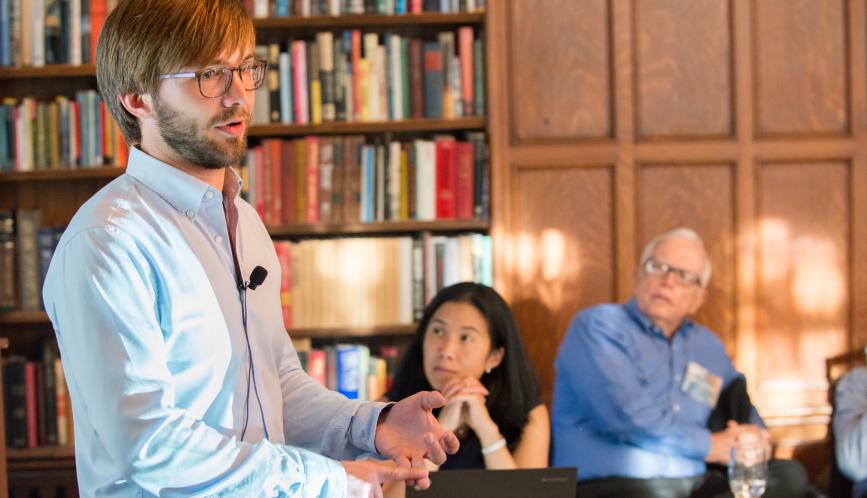John Eric Humphries is a member of the Inequality: Measurement, Interpretation, and Policy (MIP) network and a National Science Foundation Graduate Research Fellow in the Department of Economics at the University of Chicago. He is the co-author of the book, The Myth of Achievement Tests, The GED and the Role of Character in American Life, along with James J. Heckman and Tim Kautz. Humphries is also a 2013 alum of the Summer School on Socieconomic Inequality.
Please describe your area of study and how it relates to current policy discussions surrounding inequality.
There is a growing policy discussion around early childhood investment as well as increasing access to college. Both of these margins contribute to inequality, but a key determinant of many later-life outcomes is still high school graduation. The alternative education options available to students who drop out are surprisingly limited. For many, the only option available is GED certification. While the GED measures skills such as reading, writing, and math, it does not cover many of the other skills taught in high school such as showing up to class, remembering to do homework, or managing relationships with peers and teachers. Furthermore, the GED test does not help young adults make career decisions or help them apply to post-secondary programs unless it is part of a larger adult education program. As a result, many young adults will never recover from the decision they made to drop when they were 16 or 17 years old. In recent research with James Heckman and Gregory Veramendi, we find that there are large returns to graduating from high school for those near the margin of dropping out, but that the GED provides minimal benefits to this group of young adults. The returns include earnings, but they also include many other outcomes that contribute to inequality such as health, smoking, welfare use, and incarceration. Our research contributes to the broader discussion about inequality by showing that helping more students graduate from high school is one of the best ways to expand access to jobs and post-secondary education.
What are areas in the study of inequality most in need of new research?
We have made a great deal of progress documenting and analyzing the level of inequality in several dimensions of society, but we have been less successful at documenting the causes. The causes of inequality determine how inequality should be addressed from a policymaker’s perspective. If growing inequality is driven by increasing returns to skilled labor, the solution is different than if it is driven by increasing returns to capital, lack of access to credit markets, or increased assortative matching in the marriage market. To give a simple example, I don't think we know how moving one percent of workers from low-skill to high-skill would affect the equilibrium wages for either group, which limits our understanding of how helping Americans become more skilled would affect inequality. Now that we are beginning to understand the level and persistence of inequality in society, I believe the next step is to start objectively decomposing inequality into its underlying determinants.
What is your advice for incoming SSSI students?
SSSI provides a great opportunity to learn from top researchers in the field, but it also brings together a large group of young researchers who are all interested in understanding and addressing inequality. The students I met at SSSI are now friends, coauthors, and colleagues. When I applied to the SSSI, I did not fully appreciate how much I would learn and continue to learn from my peers at SSSI. For the new students, I highly recommend you engage the group. Talk to the other students about your research and see if you can't leave with new research ideas and collaborators.



